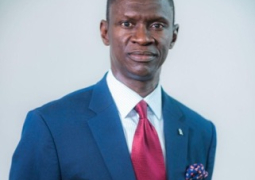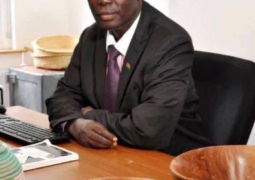(dedicated to Gambian women writers)
To quote the American feminists and women’s rights activist, Elizabeth Cady Stanton, in her essay ‘Declaration of Sentiments’, « The history of mankind is a history of respected injuries and usurpation of the part of man towards woman, having in direct object the establishment of an absolute tyranny over her”
On Thursday, 9 September 2004, the daily observer published an article entitled ‘Men still dominating: Gambian women worried’. This became quite a thought-provoking article, and it spurred me, like any academic would do, to contribute with an essay entitled ‘Women’s protest through the pen’.
Literature is a powerful weapon through which women have been able to voice out their pains and worries and enlighten their womenfolk. They can express feelings of love, anger, fear and confidence nobody knew they had. With the use of poems and short stories, essays and novels, they speak out. Please allow me to share a few of those:
Betty Rollin wrote :
“Women are now beginning to think and do more about the development of self, of their individual resources.”
And a very famous and successful writer and poet of her time, the American Adrienne Rich added.
“…women can no longer be primarily mothers and nurses for man: we have our own work cut out for us.”
The women above arouse feelings to the world; feelings of anger and betrayal, oppression and domination, and feelings for freedom, self-recognition and identity. Fiction writers, essayists and poets take up the pen fully backed by feminist’s movements who give them moral and intellectual support.
In the Gambia, as early as 1960, we have noticed women taking up these challenges by advocating for woman’s education. Such a personality as Lady Augustus Jawara would be remembered for taking a strong political role beside her husband, David Kwesi Jawara (Sir Dawda Kairaba Jawara, first President of the Republic of The Gambia) and as she relentlessly promotes girl education. In Gendered Voices, the authors will adequately refer to her works.
In her essay entitled ‘Hunger’, the Canadian writer Maggie Helwig wrote, “Women are taught to take guilt, concern, problems, onto themselves; and especially onto themselves”.
They need recognition as human beings with equal privileges. One of the most discussed topics under social domination is marriage, labelled as the institution of hell.
The husband is lord and master in the home. The simplicity and explicitness of the meaning above are easily grasped by someone living in our part of Africa, where the man constantly asserts his authority in the home and finds all the necessary means of maintaining that authority and not losing it.
Sally Sadie Singhateh will give us a grasp of that reality in her work The Sun Will Soon Shine.
Elizabeth Cady Stanton wrote:
“In her covenant of marriage, {the woman} is compelled to promise obedience to her husband, he becoming, to all intents and purposes, her master – the law giving him the power to deprive her of her liberty and to administer chastisement.”
Mary, Lady Chudleigh stressed the same point in her poem entitled “To the Ladies”, an excerpt of which I read here:
Wife and servant are but the same,
But only differ in the name:
For when that fatal knot is tied,
Which nothing, nothing can divide,
When she the word Obey has said,
The man by the law supreme has made,
Then all that’s kind is laid aside,
And nothing left but state and pride.
In polygamous marriages, as in monogamous marriages, the men decide the marriages alone. The consent of the woman is not important. This is reflected in So Long a Letter by Mariama Ba and Xala by Sembene Ousmane, where women find themselves in a situation where their husbands choose a second or third wife without being consulted or their opinion asked for. However, in So Long a Letter, the man hardly considers an educated woman useful elsewhere despite the growing number of educated women. In a conversation between Daouda and Ramatoulaye, Daouda nurtures the idea that women are destructive once outside their homes. Many women in the National Assembly would be disastrous to the country. Ramatoulie retorts, “No, we are not incendiaries, we are stimulants! We have a right, just as you (men) have, to education, which we ought to be able to pursue to the furthest limits of our intellectual capacities.”
Let me take a short break to bring you a review of the laws related to protecting women and their rights in this country. The Gambia Women’s Act 2010 is a progressive law that assures women a whole range of cultural rights. It is a comprehensive piece of legislation that seeks to enforce women’s human rights and provide protection against discrimination; it domesticates the provisions of CEDAW and the Protocols on the Rights of Women in Africa. The Act addresses positive issues ranging from women’s human rights, including the right to freedom of expression, education and training, and the right to own and manage property. Importantly, section 50 of the Act enjoins ‘that every woman has the right to live in a positive cultural context and participate at all levels in the determination of cultural policies. The Act also gives Special protection to women with disabilities, women in distress, and older women. The Act helps The Gambia fulfil Article 15, para (a) of the ICESCR General Comment.
In 1999, Gambia Government enunciated the National Policy for the Advancement of women to ensure that girls and women have equal access to education at all levels and to ensure equality in the retention, persistence, and performance of girls through the establishment of Basic Cycle Schools and the implementing of a National Language Policy.
Adrienne Rich – whose principal strength lies in social and political issues – centred her themes on women’s consciousness and societal roles. With a firm and clear voice, this very distinguished lady reflected in her work a necessity to change the social conditions by altering social, political and philosophical attitudes toward women, especially Americans. Snapshots of a Daughter-in-law, one of her most successful poems, pictures a woman haunted by voices telling her to resist and rebel, voices she can hear but not obey. This is a clear image of the caged woman.
‘Until we {women} can understand the assumptions in which we are drenched, we cannot know ourselves. And this drive to self-knowledge for women is more than a search for identity: it is part of her refusal of the destructiveness of male dominated society’ (A. Rich, When We Dead Awaken: Writing As Revision)
This can be related to the African context where parents decide who marries their daughter; the daughter obeys and never complains. In fact, in some cases, the daughter is bartered for financial gratification for the family.
Even in marriage, it is sometimes too difficult to cope, and thus, the rebellious actions of certain women ensure. Where she endures, such traditions weigh heavily on the woman’s shoulders. In most cases, the husband hardly cares for the family, leaving the mother at home to handle the children. In D. H. Laurence’s Odour of Chrysanthemums, a woman is portrayed living in a loveless marriage and becoming a mother and a servant. The Wolof will call this ‘meubal’ meaning a house decoration. “He and she are only channels through which life had flowed to issue in the children.” Betty Rollin, in her essay “Motherhood, who needs it”, firmly states that
“It doesn’t make sense anymore to pretend that women need babies when what they really need is themselves.”
Amie Sillah, a staunch feminist and advocate for women’s rights, published Silent Voices, a collection of eleven stories on women issues. Dr Siga Jagne Jallow, from her review of the book, wrote:
“The stories are not about gloom and doom but about celebrating women who triumph and whistle like women undaunted, undaunted by their situation and arriving at a position of strength. These are women who whistle undaunted against the chauvinism of the world; women who whistle undaunted because their mothers make sure that they do. No adversity is too great for these women not to overcome it-- they ride the waves of adversity to arrive safely onshore.”
Close to the end of her review, Dr Jagne Jallow wrote:
« The question on most lips will be, do these stories depicted here actually exist in our society? Though hard to believe, they mirror the realities of the poor, the vulnerable, the downtrodden and all those thrown at the margins of society in one way or the other. »
Women eventually found such situations encumbering and uncompromising. They are not objects or toys. They need freedom and consideration, but above all, they need to establish their identity. She is not there to be reduced to an object, her soul and individuality discarded, thereby enabling the man to handle her with greater safety and making her a toy. She may well prefer to live alone and rebel against such treatment. One can then say there is little harm in living unmarried. If the marriage does not promise happiness, living alone could be the most advantageous.
But before I delve further into that argument, please clarify that religion has forever been an apt scapegoat for men of generations to subdue women. No Abrahamic religion, be it in its history or doctrine, has ever accepted the subjugation of women. For centuries, patriarchal societies have used religion, both Christian and Islam, to relegate the woman to a second position. As the highest institution of learning, I urge the UTG to promote debates on issues that closely touch our societies, as we owe this to our children.
We are all aware that living unmarried is more difficult for the woman than the man in most socio-cultural contexts. Evelyn Fox Keller, in her essay “Women in Science: A Social Analysis”, clearly confirms this when she writes,
“Our society does not have a place for unmarried women. They are among the most isolated, ostracised group of our culture.”
Is this not a fact too obvious in the African context? People tend to be shocked once a stately and respectable lady is found unmarried. She might be labelled a witch, abnormal or unmarriageable in most cases. Like a songbird, the woman is caged, and her freedom – which cannot be considered freedom – is to obey and accept social domination and cultural oppression.
Through the last three centuries, intellectual oppression has been one of the most powerful forces against women’s domination. Exposing this point in her essay entitled ‘Declaration of Sentiments’, Elizabeth Cady Stanton writes;
“He has denied her the faculties for obtaining a thorough education, all colleges being closed against her.”
The little right women had in education was so minimal, so insignificant that there was no right. Gradually, women began to get access to education, and time proved that educated women could be as productive as men, and in some cases, much more responsible. Adrienne Rich, in her essay ‘Taking Women Students Seriously’, gives a confirmatory note when she writes:
“But long before entering college, the woman student has experienced her alien identity in a world which misnames her, turns her to its own uses, denying her the resources she needs to become self-affirming, self-defined”.
By our nature, we men excel in self-aggrandisement and personal gratification. An equal dose of the two sexes may create equilibrium where the tasty and the sour can douse life’s vicissitudes. Women should be given all the opportunities they need at all levels of national development.
We applaud the courage and passion of the female Gambian writers such as late Lady Augusta Jawara, Janet Badjan Young, late Dr Ralphina d’Almeida, Mariama Khan, Sally Sadie Singhateh Dr Siga Jagne, Adam Nyan, Aisha Jawara, Rohey Samba, but to name a few. We applaud the efforts of the emerging young women writers who have been contributing excellent works, and we encourage more Gambian women writers to join.





